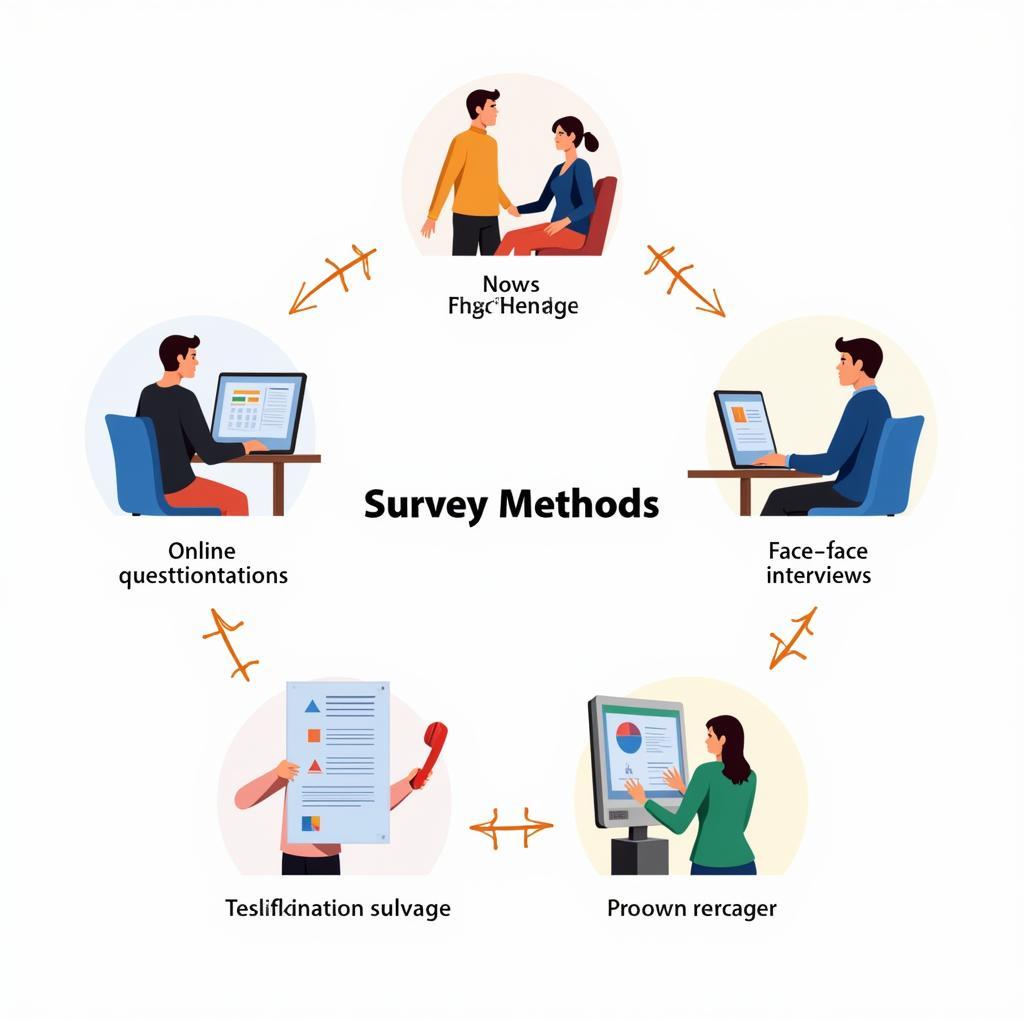Survey research is a cornerstone of modern psychology, offering a powerful tool to explore the complexities of human behavior, thoughts, and emotions. By systematically collecting data from a representative sample, researchers can gain valuable insights into patterns, trends, and relationships within the population of interest.
What is Survey Research in Psychology?
Survey research in psychology involves the systematic collection of data from individuals using standardized questionnaires or interviews. This method allows researchers to gather information about a wide range of psychological constructs, such as attitudes, beliefs, personality traits, behaviors, and experiences. The data collected through surveys can be analyzed to describe these constructs, examine relationships between them, and test hypotheses about human behavior.
Types of Survey Research
There are various types of survey research methods employed in psychology, each with its strengths and limitations. Some of the most common types include:
- Cross-sectional surveys: These surveys collect data from a sample at a single point in time, providing a snapshot of the variables under investigation.
- Longitudinal surveys: These surveys collect data from the same sample over multiple time points, allowing researchers to track changes and patterns in variables over time.
- Experimental surveys: These surveys manipulate one or more independent variables to assess their impact on dependent variables, enabling researchers to infer causal relationships.
 Different Survey Methods in Psychology
Different Survey Methods in Psychology
Steps in Conducting Survey Research
Conducting effective survey research involves a systematic approach to ensure the validity and reliability of the findings. Here are the key steps involved:
- Defining the research question: Clearly articulating the research question is crucial to guide the entire survey research process.
- Identifying the target population and sampling method: Determining the specific population of interest and selecting an appropriate sampling method is essential to ensure the generalizability of the findings.
- Designing the survey instrument: Developing a well-structured survey questionnaire or interview guide is critical to gather relevant and reliable data.
- Collecting the data: Implementing effective data collection procedures, whether online, in-person, or through other modes, is essential to maximize response rates and minimize bias.
- Analyzing the data: Utilizing appropriate statistical techniques to analyze the collected data helps uncover patterns, relationships, and statistically significant findings.
- Interpreting and reporting the findings: Drawing meaningful conclusions from the data analysis and disseminating the findings through reports, presentations, or publications is the final step in the survey research process.
Advantages and Disadvantages of Survey Research
Like any research method, survey research has its advantages and disadvantages:
Advantages:
- Efficiency: Surveys allow researchers to collect large amounts of data from a broad sample relatively quickly and cost-effectively.
- Versatility: Surveys can be used to study a wide range of psychological constructs and research questions.
- Generalizability: With careful sampling techniques, survey findings can be generalized to a larger population.
Disadvantages:
- Self-report bias: Survey responses rely on participants’ self-perceptions, which may be influenced by social desirability bias, recall bias, or other forms of response bias.
- Lack of depth: Surveys typically provide a broad overview of a topic, potentially missing nuances or in-depth understanding.
- Sampling errors: If the sample is not representative of the target population, the findings may not be generalizable.
Ethical Considerations in Survey Research
Ethical considerations are paramount in survey research, as in all research involving human participants. Researchers must prioritize informed consent, confidentiality, anonymity, and the well-being of participants throughout the entire research process.
Applications of Survey Research in Psychology
good enough teacher college research
Survey research plays a vital role in various fields of psychology, including:
- Clinical psychology: Assessing mental health symptoms, treatment effectiveness, and patient satisfaction.
- Social psychology: Investigating attitudes, beliefs, stereotypes, and social influence.
- Developmental psychology: Studying child development, parenting practices, and aging.
- Industrial/organizational psychology: Examining job satisfaction, leadership styles, and organizational culture.
 Analyzing Survey Data in Psychology
Analyzing Survey Data in Psychology
The Future of Survey Research in Psychology
With technological advancements and evolving methodologies, the future of survey research in psychology is promising. Online surveys, mobile surveys, and the integration of big data analytics are transforming the landscape of data collection and analysis, opening up new possibilities for understanding human behavior with greater precision and depth.
Conclusion
Survey research remains an indispensable tool in psychology, providing valuable insights into the intricacies of human thought, emotion, and behavior. By adhering to rigorous methodologies, ethical considerations, and embracing innovative approaches, researchers can continue to unlock valuable knowledge through survey research, advancing our understanding of the human psyche and improving lives.